Interest Free Financing Up To 36 Months
WE DO NOT ONLY PUMP YOUR TANK - WE CLEAN IT!
Multiple Financing Options Are Available Up To 36 Months
Interest Free Financing Up To 36 Months
WE DO NOT ONLY PUMP YOUR TANK - WE CLEAN IT!
Multiple Financing Options Are Available Up To 36 Months
Septic tanks are essential for waste disposal in rural and suburban areas where municipal sewage systems are frequently unavailable. Wastewater from homes are held, cleaned, and disposed of in these subterranean chambers. However, the leach field is a concern. Does it have to be a part of every septic system, or is it possible to have a septic tank without one?
In this blog post, our professionals from Septic Blue of Raleigh will discuss the topic of, if you can have a septic tank without a leach field.
Before exploring whether a leach field is required, it is important to understand how a septic system works. The soil, the leach field (sometimes called the drain field), and the septic tank make up the three primary components of a standard septic system. The entire wastewater generated by your home is collected in the septic tank. Lighter substances like grease and oils float to the top of the tank as scum, while solids settle to the bottom to produce sludge. After being further processed and absorbed into the soil in the leach field, the liquid wastewater exits the tank.
Although most septic systems come with a leach field as standard equipment, there are some circumstances in which it may not be required or practical. For example, it might not be feasible to create a leach field in regions with high water tables or rocky terrain. Alternative techniques for disposing of wastewater, such as mound systems or sophisticated treatment units, may be used in certain circumstances.
Alternative techniques are used when a regular leach field is impractical. Building raised soil beds above ground level is known as a mound system, and it enables appropriate wastewater treatment and absorption. On the other hand, advanced treatment units purify wastewater to a higher quality before dispersing it into the soil by using technologies like sand filtering or aerobic digestion. For locations where a leach field is not an option, these alternative methods provide workable solutions, while maybe requiring higher initial expenses and ongoing upkeep.
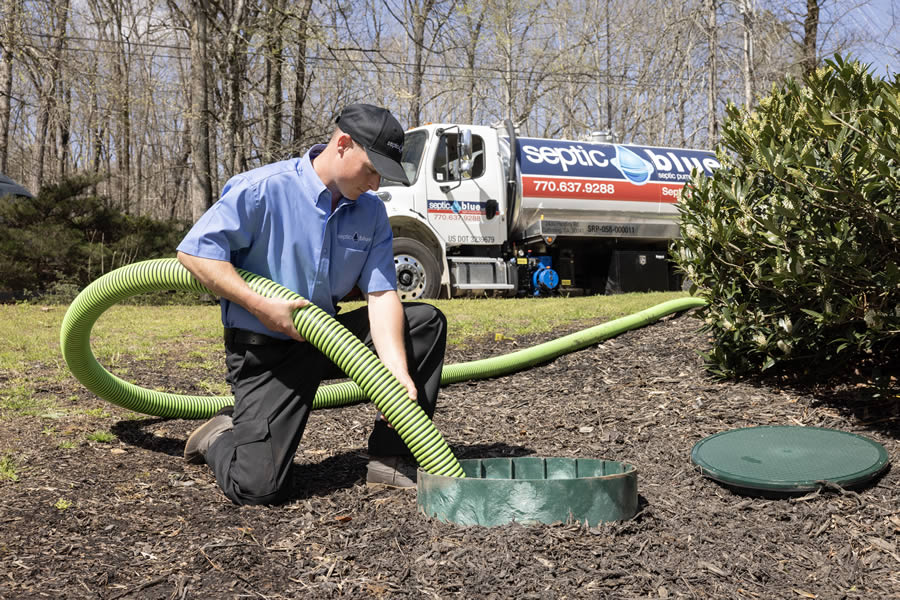
Septic tank pumping in Raleigh has never been so affordable and accessible thanks to the professionals at Septic Blue. We are…
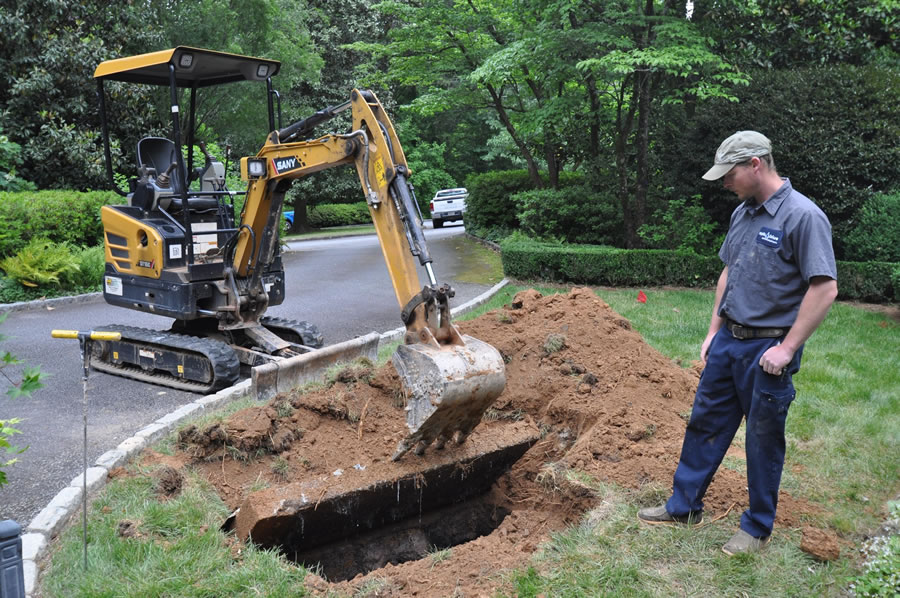
One quarter of Americans rely on septic tanks to process household waste. Most Septic Blue locations have septic tank experts who…
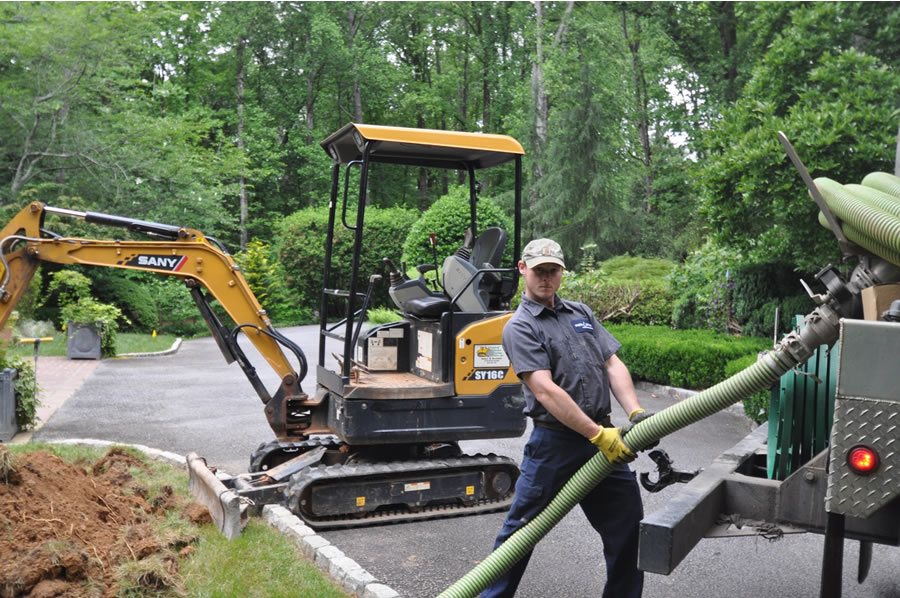
Call Septic Blue today for a second opinion. If you choose to go with Septic Blue, you'll receive $250 off your…
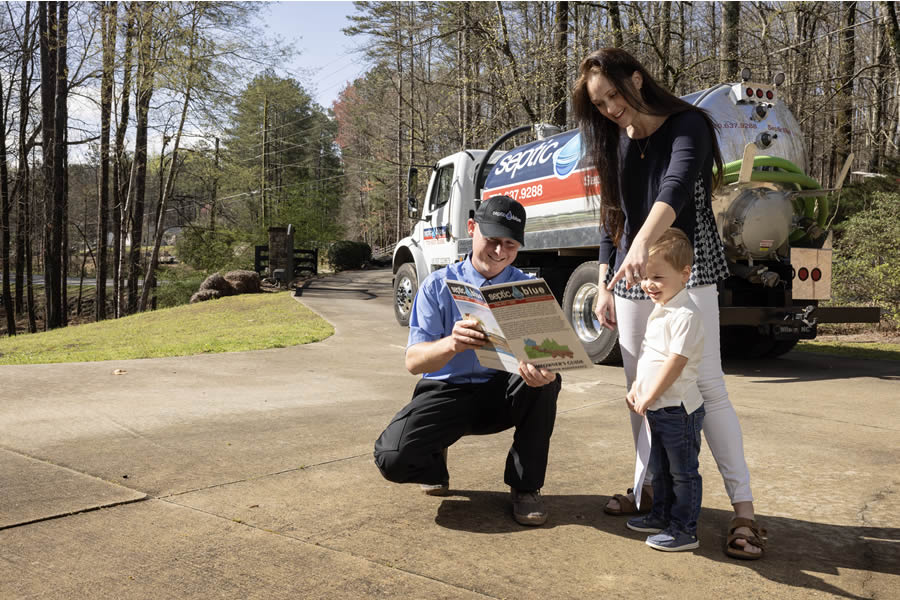
If you are a homeowner or resident in Raleigh that is among the 20 percent of households in the U.S. with…
Professional Saptic Plumbing solutions for every need. Contact Us Today!
Whether your septic system has a leach field or not, it needs to be maintained on a regular basis to function properly. It is important to remember that septic tank pumping, cleaning, and maintenance are necessary procedures. The lifespan of your septic system can be extended and expensive repairs can be avoided by hiring a reputable septic company to regularly inspect and maintain your system.
In order to keep solids from overflowing into the leach field or blocking the system, septic tanks must be pumped to remove accumulated sludge and scum. Depending on the size of your home and usage, pumping your septic tank every three to five years is advised. Furthermore, routine septic tank cleaning promotes the best possible bacterial balance in the tank, guaranteeing effective wastewater treatment.
Septic systems will inevitably need repairs because of wear and tear or unanticipated problems. It is imperative to promptly repair septic tanks in order to avert system malfunctions and environmental pollution. It is essential to get professional assistance from a trustworthy septic firm for any repairs, whether they involve replacing a broken tank or clearing a blocked leach field. A new septic system installation also necessitates careful consideration of the site's characteristics, local laws, and required long-term upkeep.
Are you in need of a septic tank installation? Luckily, we at Septic Blue of Raleigh have dedicated workers ready at your service. Contact our representatives for more questions.
.webp)
Even if it often fades into the background of daily life, a septic system plays a critical role in keeping your…
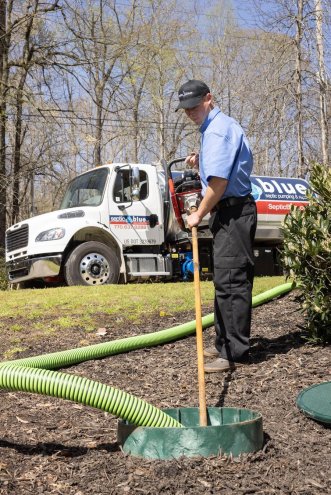
Septic systems play a critical role in protecting your home, health, and surrounding environment. Unfortunately, they're often misunderstood as systems that…
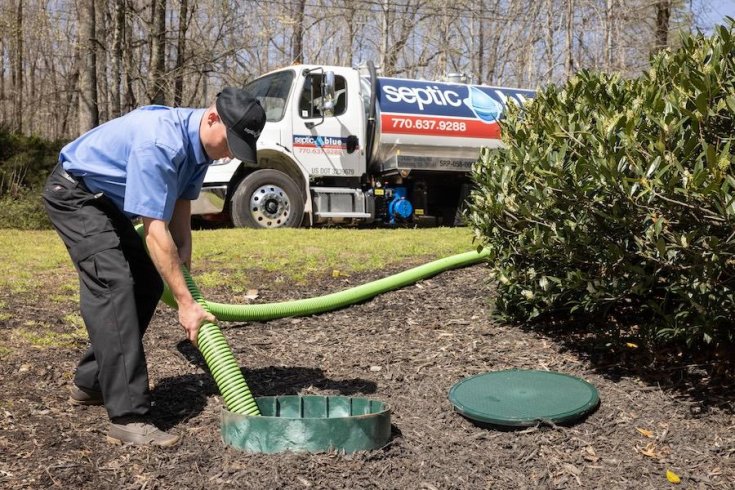
A well-maintained septic system supports daily life in ways that are easy to overlook, from dependable drainage to a healthy home…
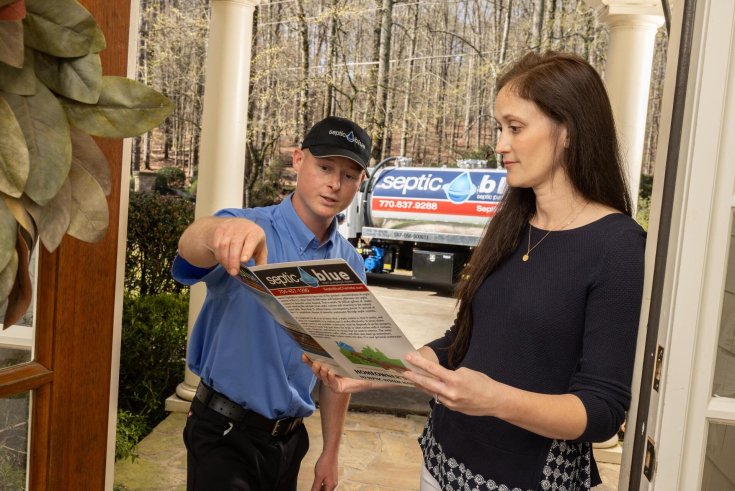
Septic systems are an essential but often misunderstood part of a rental or owned property, and confusion about responsibility can quickly…